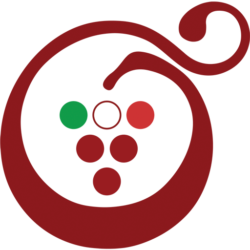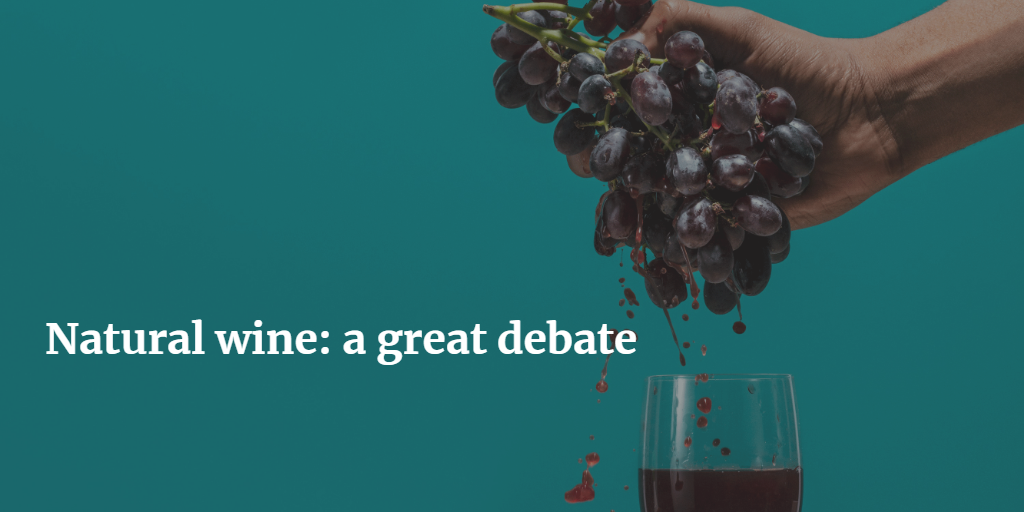
Recently natural wine is a hot topic. Many wine industry professionals are discussing the matter and the usual questions raised are:
- Should sulphur be allowed or not?
- Do natural wines reveal terroir better than conventional wines?
- Has natural wine changed our notion of flaws?
Most controversial of all is the definition of natural wine in the first place. In fact, despite recent news of the ‘Vin Méthode Nature’ charter in France (March 2020), on a global level, there is still no definitive definition of natural wine.
[On March 2020 an official definition of natural wine emerged from under the supervision of French INAO – the organization that administers French appellations. The designation ‘Vin Méthode Nature’ (EU regulations forbid the use of the term ‘natural’ after a yoghurt lawsuit) wants to distinguish their wines with a private logo from those that would not meet the stringent new criteria.
In order to use the denomination grapes must come from certified organic vines, be hand-picked, produced using only indigenous yeast. Thermovinification, reverse osmosis, flash pasteurisation, cross-flow filtration methods are all banned. An addition of up to 30 mg/lt of sulphur dioxide is allowed only before bottling, but no additions are permitted before or during fermentation.]
Mr. Simon Woolf says “Natural wine is not a religion, a creed or a caste – at least it shouldn’t be. The term “natural wine” for me is just a convenient short-form to signify to consumers, retailers, and other interested parties that the wine was made with the minimum possible intervention in both vineyard and cellar”.
Ms. Filipa Pato calls it “a wine without makeup”, an honest wine which tries to reflect its terroir, in all its glory but also all its shortcomings.
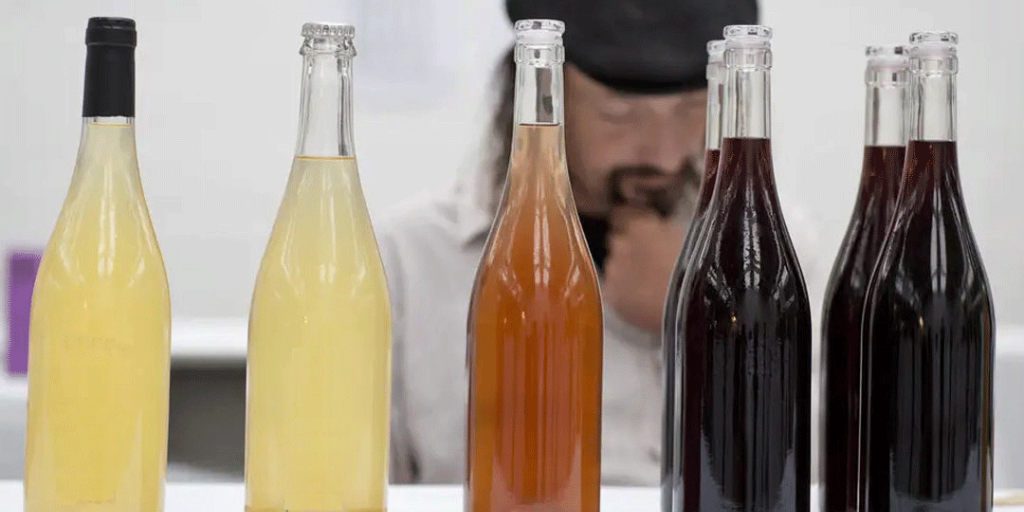
Mr. Andrew Jefford says “Nature in French means plain, unflavoured, as it comes, undressed. A yogurt nature is the unflavoured sort, as opposed to raspberry or vanilla yogurts. A better English-language equivalent of vin nature would therefore be Plain Wine or Unadjusted Wine.”
He elaborates further “Natural in English is quite different. The problem is the implication that only this sort of wine is ‘natural’, meaning existing in nature or derived from nature. Anything which is not “natural” must be “unnatural”. This is clearly pejorative and misleading, and this implied assumption of superiority is one of the biggest problems with this wine category. The term itself misleads”.
He also suggests to call natural wine ‘no-additive wine’ or ‘zero-additive wine’. Members of associations who wish to adhere to more stringent rules and practices (like outlawing cold fermentation or the blocking of malo) would then be free to do so, and use their own organizational logos on labels.
There is still a potential problem here: how to analytically distinguish between added sulphur and spontaneously generated sulphur during fermentation?
Perhaps we can say that vin nature should also mean ‘nothing added’ in the vineyards as well as in the cellar. That would be a better definition according to Mr. Woolf, because a very high proportion of natural wine drinkers equate this movement with sustainability and ecology, and expect that these wines are made with adherence to organic or biodynamic standards.
If we want to get closer to the true ethic of 99% of natural wine producers, the definition must include mention both of farming methods and the removal of other manipulative practices in the cellar. Plenty of major wineries roll out ‘no added sulphur’ ranges and so forth: that is largely meaningless.
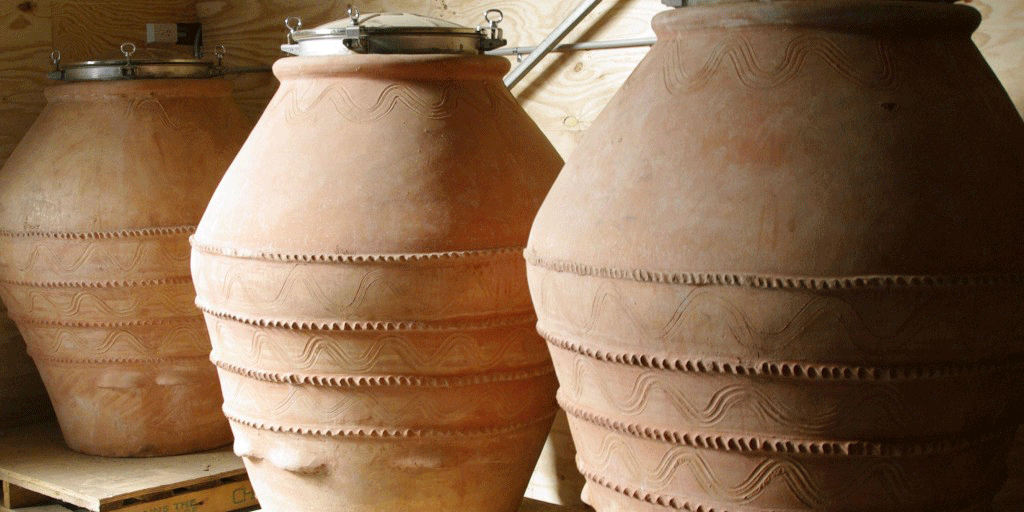
Almost all the earliest alcoholic beverage residues from ancient pottery analysed and dated by Patrick McGovern and his colleagues have proved to be either mixed beverages (usually a melange of grape wine, beer and mead) or flavoured wines (often with resin or pitch).
[the 2018 finds in Georgia were unusual precisely because they weren’t mixed beverages]
From the moment humans domesticated alcoholic fermentation, they have been intervening in order to preserve wine for longer than nature intended, or to make it taste more pleasant than it might otherwise do by blending or by adding flavourings. Modern ‘unnatural’ wine as drunk by most of us today is probably the least unpleasant wine in human history.
Still troubled by the claim of ‘natural’. What is natural about a tractor or plastic picking boxes, used by all? What is natural about a glass bottle, used by all? What is natural about a truck driving pallets of wine from a remote artisanal winery to a busy port where they are loaded into refrigerated containers and hauled off in a ship powered by the world’s most polluting fossil fuel, all the way to Singapore, where that wine will be kept under air-conditioning for months before the bottles are opened by folks who have just stepped off flights from Sydney or New York in a natural wine bar?
To worry about 10 mg sulphur added to 75 cl of red wine alongside this colossal mountain of unnaturalness and environmental wreckage seems surreal and symptomatic of a loss of proportion. You don’t just drink the wine when you drink wine; you drink the packaging and the transport, too.
[In the EU the maximum levels of sulphur dioxide are 210 mg for white wine and 160 mg for red wine. Many foods though have higher levels of sulphites than wine, for instance, dried fruits have about 10 times more. However, sulphites topic deserves a full article.]
“The concept of natural wine is completely unregulated, right now anyone can say their wine is natural or ‘nature’. At least the ongoing work of Charter of Vin Méthode Nature will provide a mechanism for French natural wine producers to effectively self-certify that they are doing what they claim. I think this is a positive step” says Mr. Woolf.
“I was particularly happy to see that organically grown grapes are number one on the list. I’ve already said this, but there is nothing more important than the farming standards. If the grapes were sprayed with glyphosates, I really couldn’t give a damn whether there are 10mg/L or 100mg/L of sulphites in the wine, I don’t want to drink it”.
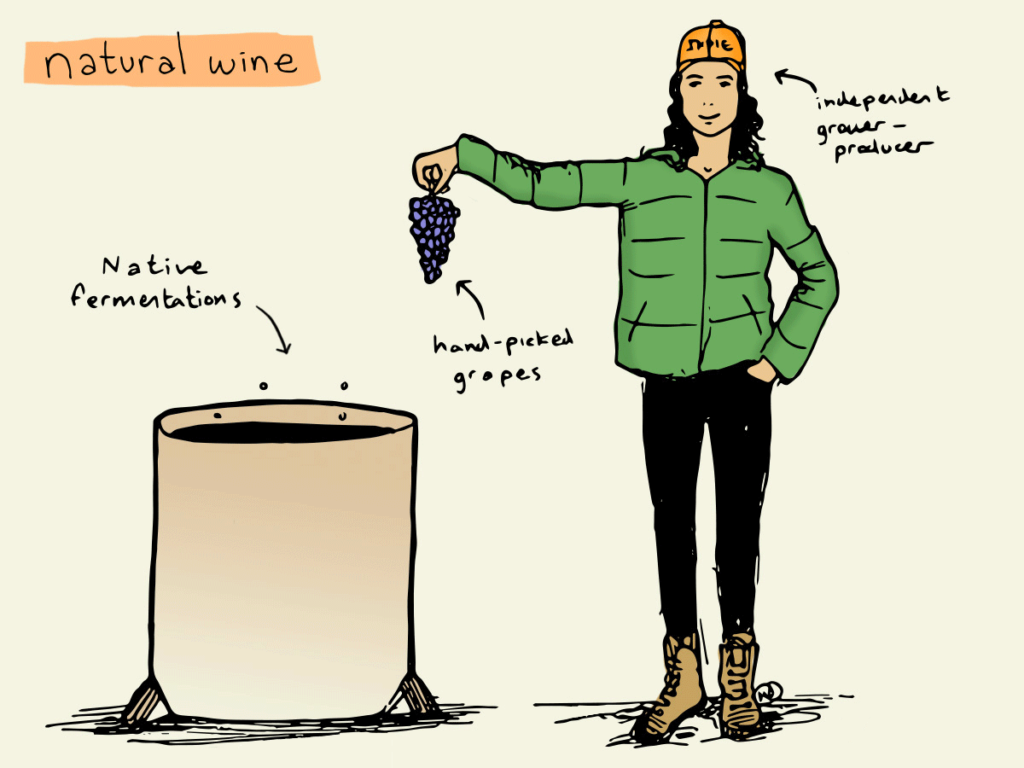
Source: ideas and thoughts from a 28 July 2020 conversation between Mr. Andrew Jefford (Wine Scholar Guild’s Academic Advisor and long-time columnist for Decanter and World of Fine Wine) and Mr. Simon J Woolf (natural-wine writer and author of Amber Revolution: How the World Learned to Love Orange Wine) moderated by Mr. Kevin Day

